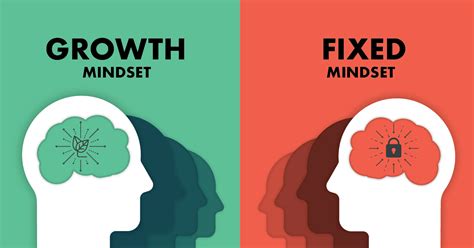In a world constantly vying for our attention and energy, cultivating discipline can feel like an uphill battle. Yet, the most successful individuals in both physical fitness and financial stability share a common secret: a deeply ingrained, resilient mindset. This isn’t about brute force willpower, but rather a strategic reprogramming of your mental operating system to automatically align with your long-term goals. If you’ve struggled with consistency in hitting the gym or sticking to a budget, the solution isn’t more effort; it’s a fundamental shift in how you think and perceive these areas of your life.
Understanding the Core Problem: Limiting Beliefs
Before you can build unbreakable discipline, you must identify and dismantle the invisible barriers holding you back. These are your limiting beliefs – deeply held convictions about yourself, your capabilities, or the world that often manifest as “I’m not good with money,” “I’m too busy to work out,” or “Discipline just isn’t my strong suit.” These beliefs are powerful because they shape your reality, dictating your actions and reactions without you even realizing it.
To begin reprogramming, acknowledge these beliefs. Where do they come from? Are they truly factual, or are they inherited narratives or past failures replaying in your mind? The first step is awareness, followed by challenging their validity. Ask yourself: “Is this belief truly serving me?”

Harnessing Neuroplasticity for Lasting Change
Your brain isn’t static; it’s incredibly adaptable, a concept known as neuroplasticity. This means you can literally rewire your neural pathways through consistent thought and action. Every time you choose a new, positive thought or action over an old, negative one, you strengthen that new pathway. This is the scientific basis for habit formation.
One powerful tool is visualization. Regularly imagine yourself as the disciplined individual you aspire to be – effortlessly managing your finances, crushing your workouts, and feeling confident. Couple this with positive affirmations, stated daily and with conviction. “I am a financially disciplined individual,” “I am committed to my physical well-being.” These aren’t just feel-good phrases; they are direct commands to your subconscious, gradually shifting your self-perception.
Another key is to focus on identity-based habits. Instead of “I want to save money,” think “I am a saver.” Instead of “I need to work out,” think “I am an active person.” When your habits align with your identity, they become less about obligation and more about expressing who you are.
Strategies for Unshakeable Fitness Discipline
Building fitness discipline isn’t about monumental changes, but consistent, small victories. Start ridiculously small. If your goal is to exercise daily, begin with a 5-minute walk. The goal isn’t the intensity, but the consistency of showing up. Once that 5 minutes becomes second nature, gradually increase the duration or intensity.
Design your environment for success. Lay out your workout clothes the night before. Keep your gym bag by the door. Find an accountability partner or join a class that holds you responsible. Track your progress, celebrating every small milestone – the extra rep, the longer run, the improved flexibility. Seeing tangible results reinforces your belief in your capabilities and fuels your motivation.

Strategies for Robust Financial Discipline
Financial discipline, much like fitness, thrives on awareness, planning, and consistent action. Begin by gaining clarity on your current financial situation. Track every dollar in and out for a month. This isn’t about judgment, but data collection.
Next, create a realistic budget that aligns with your values and goals. This isn’t about deprivation, but intentional allocation. Automate your savings and bill payments as much as possible. “Pay yourself first” by having a portion of your income automatically transferred to a savings or investment account before you have a chance to spend it.
Practice delayed gratification. Before making a non-essential purchase, implement a “24-hour rule” – wait a day before buying. This pause often reveals if the purchase is truly necessary or just an impulse. Educate yourself regularly about personal finance; knowledge empowers better decision-making and reinforces your commitment to your financial future.

Integrating Both: The Holistic Approach
What’s often overlooked is the profound synergy between fitness and financial discipline. When you take care of your physical health, you often have more energy and mental clarity to make better financial decisions. Conversely, financial stability can reduce stress, allowing you to focus more effectively on your well-being. Both require delayed gratification, planning, consistency, and a belief in a better future.
Treat both areas as interconnected aspects of your overall life mastery. Apply the same principles: identify limiting beliefs, visualize success, build small habits, and celebrate progress. Understand that setbacks are inevitable. The key is not to avoid them, but to learn from them and get back on track quickly, without letting a single misstep derail your entire journey.

Conclusion: Your Journey to Unbreakable Discipline
Reprogramming your mindset for unbreakable fitness and financial discipline isn’t an overnight transformation; it’s a continuous journey of self-awareness, intentional action, and persistent refinement. By understanding your limiting beliefs, harnessing your brain’s capacity for change, and implementing consistent, small steps in both areas, you can build a resilient inner framework that supports your greatest aspirations. Embrace the process, celebrate your progress, and commit to being the architect of your own disciplined and abundant life.





